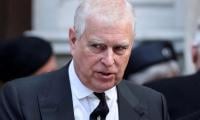Health experts believe Pakistan very close to becoming polio-free
PESHAWAR: The bottom line of speeches delivered by health experts in the two-day media workshop was that Pakistan for the first time is very close to become a polio-free country provided the state, the nation, parents and the media continued their commitment in efforts against eradication of poliovirus from the country.
The National Emergency Operation Centre for Polio Eradication (NEOC) had organised the event in collaboration with the Unicef and World Health Organisation (WHO).
The journalists covering health-related issues were invited to the workshop from the four provinces and erstwhile Fata.
The speakers said national and international organisations handling poliovirus in the country were still facing numerous serious challenges in reaching each and every child during the polio drive owing to a host of reasons.
They noted that the biggest challenge until 2014 was inaccessibility to thousands of children in the tribal areas, particularly in North Waziristan and South Waziristan, where local Taliban leaders had banned polio vaccination. They recalled that the militants had linked polio immunisation to an end to drone strikes in Waziristan by the CIA-operated spy aircraft.
A senior Unicef communication official, Ban Al-Dhayi, however, admitted that suffering of polio workers particularly started after May 2, 2011 when the CIA conducted a fake immunisation campaign that led to the US Navy SEALs attack on a three-story compound in Abbottabad in which Osama bin Laden was killed.
It was learnt later that the CIA had used a Pakistani physician, Dr Shakil Afridi in conducting the fake hepatitis-B immunisation drive to collect DNA and trace bin Laden.
It was the American CIA that sabotaged the global health initiative by using this noble profession for spying purposes and putting the lives of humanitarian and health workers in danger.
The meaningful silence of WHO and Unicef to clarify that it was in fact hepatitis-B campaign and not anti-polio drive caused harm to the global efforts for polio eradication.
Some health experts said violence against polio workers in Pakistan first started in 2007, but the Abbottabad operation proved a turning point and militant groups then began target killing of polio workers and also security personnel deployed on security duty during the campaign. According to officials, 41 people who were mostly polio workers lost their lives in target killings.
For national and international health organisations, 2014 was the most frustrating year when Pakistan alone reported 306 polio cases.
Dr Rana Muhammad Safdar, coordinator of NCEOP, informed the participants about efforts being made at the national level against polio eradication.
He said the entire pattern of programme was changed after 2014 and innovative ideas were incorporated that helped them achieve maximum goals in the fight against polio.
Dr Rana Safdar said the level of their data collection from fields and actions taken has even surprised the world.
He said that like last year, Pakistan again has reported three polio cases this year.
But the difference, he argued, was that in 2017 the polio virus had affected three provinces by this time and this year, but now the virus had been curtailed to only a small area in one province, Balochistan.
“This is the battle for survival between human beings and virus. With commitment of the Pakistani nation and the positive role of the media has helped create awareness to enable Pakistan to overcome the menace of polio,” said Dr Rana Safdar.
In his view, 95 percent of the people were supportive of polio vaccination due to the positive role of mainstream media. He said four percent of the people have been opposing vaccination due to misconceptions associated with vaccines as some suspect that it sterilizes the girls. He added that others raised questions over ingredients of the vaccine.
According to Dr Safdar Rana, only one percent of people were opposing polio vaccination due to negative propaganda of the enemies of Pakistan.
He and other speakers were of the view that even if one child is missed during polio vaccination, it would continue to pose persistent threat to lives of millions of other children in the country.
Dr Ahmed Ayub of WHO said refusals were still a major issue and a big challenge to the efforts being made for polio eradication. He said refusals were now also coming from educated parents living in posh areas.
-
 Kim Kardashian Shares One Regret She Wishes Had Not Happened
Kim Kardashian Shares One Regret She Wishes Had Not Happened -
 Why Blake Lively Claims 'It Ends With Us' 'nearly Killed' Her?
Why Blake Lively Claims 'It Ends With Us' 'nearly Killed' Her? -
 Brooklyn Beckham’s Statement Gets Run Over: ‘You Wouldn’t Have Any Of This Yourself’
Brooklyn Beckham’s Statement Gets Run Over: ‘You Wouldn’t Have Any Of This Yourself’ -
 Princess Beatrice Follows Eugenie Into Anguish As Their ‘York Greek Tragedy’ Threatens Family Further
Princess Beatrice Follows Eugenie Into Anguish As Their ‘York Greek Tragedy’ Threatens Family Further -
 Prince Harry Urges His Pals Are ‘not Leaky,’ He Is Not ‘Mr Mischief’
Prince Harry Urges His Pals Are ‘not Leaky,’ He Is Not ‘Mr Mischief’ -
 What Prince William And Kate Think Of Brooklyn's Attack On Victoria And David Beckham?
What Prince William And Kate Think Of Brooklyn's Attack On Victoria And David Beckham? -
 Meghan Trainor Reveals Why Surrogacy Was The 'safest' Choice
Meghan Trainor Reveals Why Surrogacy Was The 'safest' Choice -
 Victoria Beckham Supports Youngest Son In First Move Since Brooklyn's Rebellion
Victoria Beckham Supports Youngest Son In First Move Since Brooklyn's Rebellion -
 'Percy Jackson' Star Feels Relieved After Season Two Finale
'Percy Jackson' Star Feels Relieved After Season Two Finale -
 Jelly Roll Reveals How Weight Loss Changed Him As A Dad: 'Whole Different Human'
Jelly Roll Reveals How Weight Loss Changed Him As A Dad: 'Whole Different Human' -
 Prince Harry Gets Emotional During Trial: Here's Why
Prince Harry Gets Emotional During Trial: Here's Why -
 Queen Camilla Supports Charity's Work On Cancer With Latest Visit
Queen Camilla Supports Charity's Work On Cancer With Latest Visit -
 Dove Cameron Opens Up About Her Latest Gig Alongside Avan Jogia
Dove Cameron Opens Up About Her Latest Gig Alongside Avan Jogia -
 Petition Against Blake Lively PGA Letter Gains Traction After Texts With Taylor Swift Revealed
Petition Against Blake Lively PGA Letter Gains Traction After Texts With Taylor Swift Revealed -
 Netflix Revises Warner Bros. Deal To $83 Billion: All-cash Offer
Netflix Revises Warner Bros. Deal To $83 Billion: All-cash Offer -
 Prince Harry Mentions Ex-girlfriend Chelsy Davy In UK Court
Prince Harry Mentions Ex-girlfriend Chelsy Davy In UK Court



